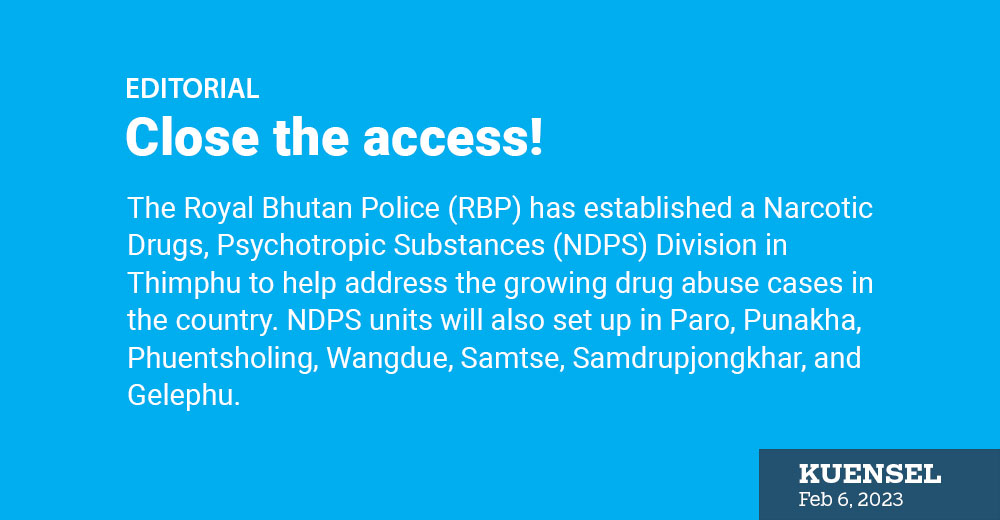The Royal Bhutan Police (RBP) has established a Narcotic Drugs, Psychotropic Substances (NDPS) Division in Thimphu to help address the growing drug abuse cases in the country. NDPS units will also set up in Paro, Punakha, Phuentsholing, Wangdue, Samtse, Samdrupjongkhar, and Gelephu.
Stats tell us that cases of drug abuse are prevalent, and growing in some places, particularly in the bigger population centres. In 2022, more than 1,200 people were detained for drug-related cases from the eight dzongkhags and towns. Thimphu had the most cases, 449, followed by Phuentsholing, 188, and Paro, 161.
Drug abuse and trafficking continue to be a major concern even as the Royal Bhutan Police (RBP) has begun an initiative to sensitise the public through various measures. The bigger concern is that it is young people who fall and are trapped in this business and lifestyle.
We also know that drug abuse and trafficking are the leading causes of violence and deprivation in society. It is not only young people with education that are jobless in the country—a significant proportion of people without employment constitute young people who have a history of drug abuse or are continuing to abuse drugs and psychotropic substances.
While we must invest in all the available measures that can help us curb the problem, there is a need for us to ask ourselves why we actually have the problem of drug abuse in the country and why is it rising. In particular, why are young people the most vulnerable group?
Measures must address the problem. They could just be financial and administrative burden otherwise.
Studies show that there is a pattern and that no child is born with criminal tendencies. Complicated factors—social, economic, economic, and environmental—are involved which disrupt a child’s behaviour.
But then, we must also look at the problem from the point of view of access. Harmful substances such as drugs and alcohol are within easy reach of our children today. And, drugs and alcohol, we know, are the leading contributors to juvenile crime.
While measures such as naming and shaming must go on, there is a need for us to understand whether the measure has contributed significantly to addressing the problem.
The main problem is in the access. So long as access to drugs and other harmful substances remains open, cases of drug abuse will continue to grow.


